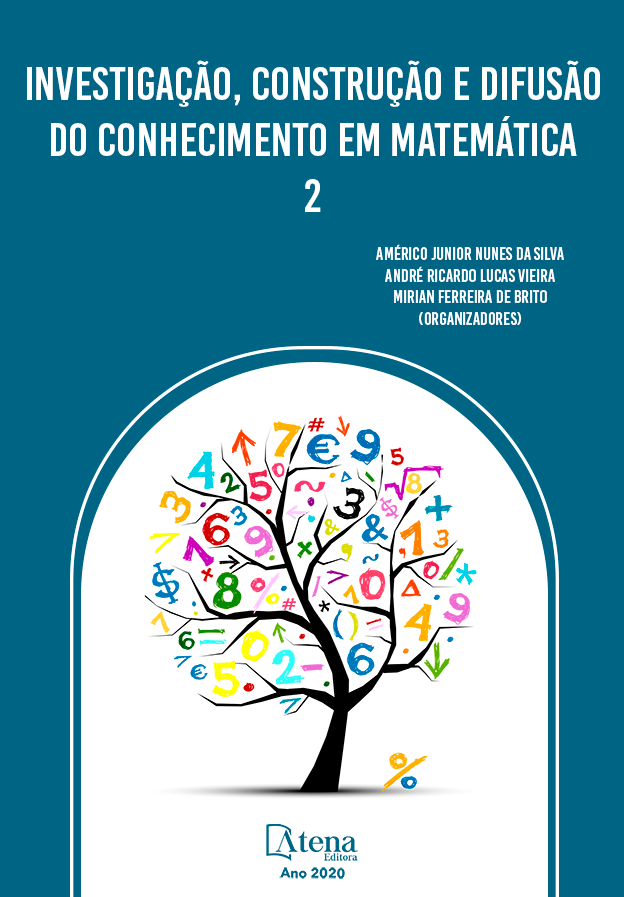
O USO DE JOGOS E DINÂMICAS EM GRUPO PARA O ENSINO DE MATEMÁTICA: POSSIBILIDADES NA PRÁTICA NO PRIMEIRO ESTÁGIO
O acadêmico da Licenciatura em Matemática tem seu primeiro contato com a docência no Estágio Supervisionado ao Ensino de Matemática I, e tal experiência é de fundamental importância, pois é neste momento que efetivamente teremos contato com a prática docente, bem como, seus desafios e realizações. Este trabalho tem por objetivo apresentar as experiências do autor na sua prática do primeiro estágio e também uma reflexão dos respectivos resultados. No estágio, o autor gozou de bastante liberdade por parte do professor supervisor, o que possibilitou que o mesmo fizesse o uso de metodologias pouco usuais na escola atualmente. As metodologias aplicadas foram baseadas em jogos matemáticos e resolução de problemas, onde os alunos foram organizados em quartetos, e assim foram mantidos durante todas as aulas do período de docência. Tais metodologias foram adotadas a fim de criar e aprimorar o raciocínio lógico, indutivo e dedutivo, propiciando criticidade e criatividade, consequentemente criando a capacidade de adaptação a diversas situações e fomentando a coletividade e o coleguismo. As primeiras aulas tiveram um caráter mais dinâmico, com atividades mais concretas e jogos, contudo é impraticável que todas as aulas tenham esse viés. Logo nas primeiras aulas expositivas dialogadas, sucederam questionamentos quanto ao “jogo da aula”, entretanto, ao longo do estágio, ocorreu adaptação ao sistema proposto. A metodologia mostrou resultados durante o período de estágio em dois momentos, no primeiro, um aumento da cooperatividade entre os alunos, quando se auxiliaram a completar os cadernos para apresentação de atividades, e posteriormente na apresentação de um problema, em que eles deveriam expor a resolução para os colegas. A metodologia aplicada gerou um comportamento mais constante nos alunos, tanto nas aulas expositivas quanto nas dinâmicas, mostrando assim que a metodologia escolhida pelo autor foi além dos objetivos esperados.
O USO DE JOGOS E DINÂMICAS EM GRUPO PARA O ENSINO DE MATEMÁTICA: POSSIBILIDADES NA PRÁTICA NO PRIMEIRO ESTÁGIO
-
DOI: 10.22533/at.ed.10220101210
-
Palavras-chave: Metodologia de Ensino de Matemática; Primeiro Estágio; Prática Docente.
-
Keywords: Math Teaching Methodology; First Internship; Teaching Practice.
-
Abstract:
The student of Mathematic has his first touch in teaching while doing a Supervised Internship in the course Math Teaching I, that experience is of underlying value, because it’s in this moment that we effectively have contact with the teaching practice, with its realizations and challenges. This paper’s goal is to show the experiences of the writer in its first internship teaching practice as well as a thought of its results. In the internship the writer received a lot of freedom by its supervising teacher, which allowed him to use unusual methodologies in schools currently. The methodologies applied are based in math games and problem solving, where the students were divided in quartets and kept that way all the teaching time. That methodology was chosen with the goal of creating and improving inductive and deductive logic reasoning, providing criticism and creativity, thereafter creating the capacity of adaptation to different situations and instigating collectivity and fellowship. The first classes had a more dynamic way, with more concrete activities and games, however, it’s impractical to have all classes in that bias. In the early classes of a more dialoged and expository way, questions about the “lesson’s game” happened, but over the course of the internship, the adaptation to the teaching method took place. The methodology showed off its results, during the time of internship, in two moments, at first, an increase in the cooperation between students, when they were working together to complete the exercise book, and then when presented to a problem, where they had to show the resolution to the classmates. The methodology used created a more stable behavior in the students, both in the expositive and in the dynamic classes, demonstrating that the methodology chosen by the writer went beyond the initial goals.
-
Número de páginas: 13
- Lisandro Bitencourt Machado
- Leonardo Pospichil Lima Neto


